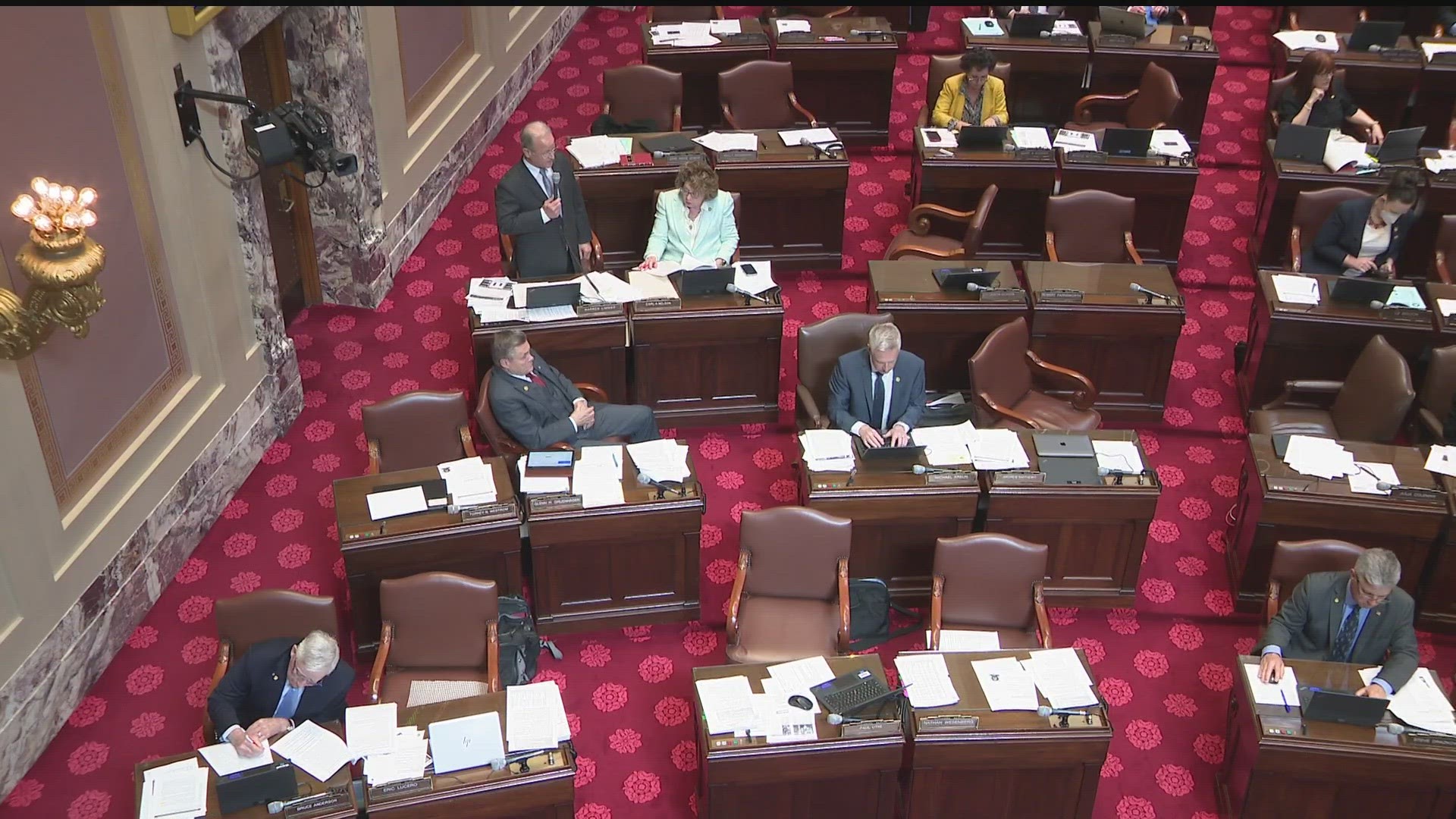ST PAUL, Minn. — The Minnesota Senate advanced a sweeping public safety package late Friday after a marathon debate that punctuated the partisan divide over justice reforms.
The legislation funds the state court system, corrections system, Dept. of Public Safety, POST Board, BCA, prosecutors, public defenders, Dept. of Human Rights and a wide array of grant programs designed to make communities safer.
Community-based violence reduction programs, crime prevention and local youth intervention programs all stand to benefit from the bill.
"In the area of preventing crime we are making game-changing and historic investments in youth intervention, and preventing recidivism," Sen. Ron Latz, who chairs the Public Safety Committee, told reporters.
"The only way we’re going to bend the curve long-term towards reducing crime in our society is to identify and take care of those youth that are beginning to show signs of going down the wrong path."
In the end, all 34 Democrats supported Latz's Omnibus Public Safety Bill while all 33 Republicans voted against it.
Republicans objected to a provision that would create a pathway for some felons to move from prison time to probation sooner. Sen. Warren Limmer, the ranking Republican on the public safety panel, branded the legislation the "Get Out of Jail Free" bill.
"The purpose of government is the safety of its citizens and yet the Senate bill seems to be focused more on the end of the criminal justice system, meaning who’s in prison and how soon can we get them out," Limmer lamented.
"Victims are denied justice when that happens. Victims expect the system, the system of governing, to protect them."
Under current law, inmates serve two thirds of their prison sentence behind bars and the final third on probation subject to being reincarcerated if they violate the terms of their release.
The Minnesota Rehabilitation and Reinvestment Act, which is folded into the omnibus public safety bill, would allow inmates to move to probation after serving only half of their sentence in prison if they complete steps such as getting a GED, taking skills training, and successful chemical dependency treatment.
"Someone who's sentenced to 20 years in prison, they're still getting a 20-year prison sentence," Latz explained.
"It's just that instead of getting out in 13 and a half years they might get out in 10 years, if they do the all the things they're going to do make themselves safer."
Latz said that inmates who are more prepared to leave prison are less likely to reoffend, and the chance for early release can be a great motivator.
"The entire MMRA is premised upon creating incentives, a profit motive if you will, to encourage people to better themselves before they get out in the community, and when they're out in the community to behave themselves better."
The program would not be available to anyone serving a life sentence, which generally stems from a first-degree murder case or some sex crimes.
Republicans also rejected to reforms in the bill that would reduce sentences for some juvenile offenders who were prosecuted and sentenced as adults. If they were under the age of 18 when they committed the original crime, they could be eligible for parole after serving 15 years in prison.
The package includes tougher penalties for crimes involving fentanyl, essentially treating that powerful narcotic the same as heroin under the law.
Organized retail theft would also become a specific crime, with felony level charges possible depending on the amount stolen by the theft ring members arrested.
The bill also establishes the Office of Missing and Murdered Black Women and Girls. It also creates more reporting requirements around bias crimes, and training for law enforcement to recognize those offenses for what they are.
As written the Human Rights Department commissioner would be required to submit an annual report to the governor the list of incidents, "motivated in whole or in part by a person’s actual or perceived race, color, ethnicity, religion, sex, gender, sexual orientation, gender identity, gender expression, age, national origin, or disability."
Watch more Minnesota politics:
Watch the latest political coverage from the Land of 10,000 Lakes in our YouTube playlist:

